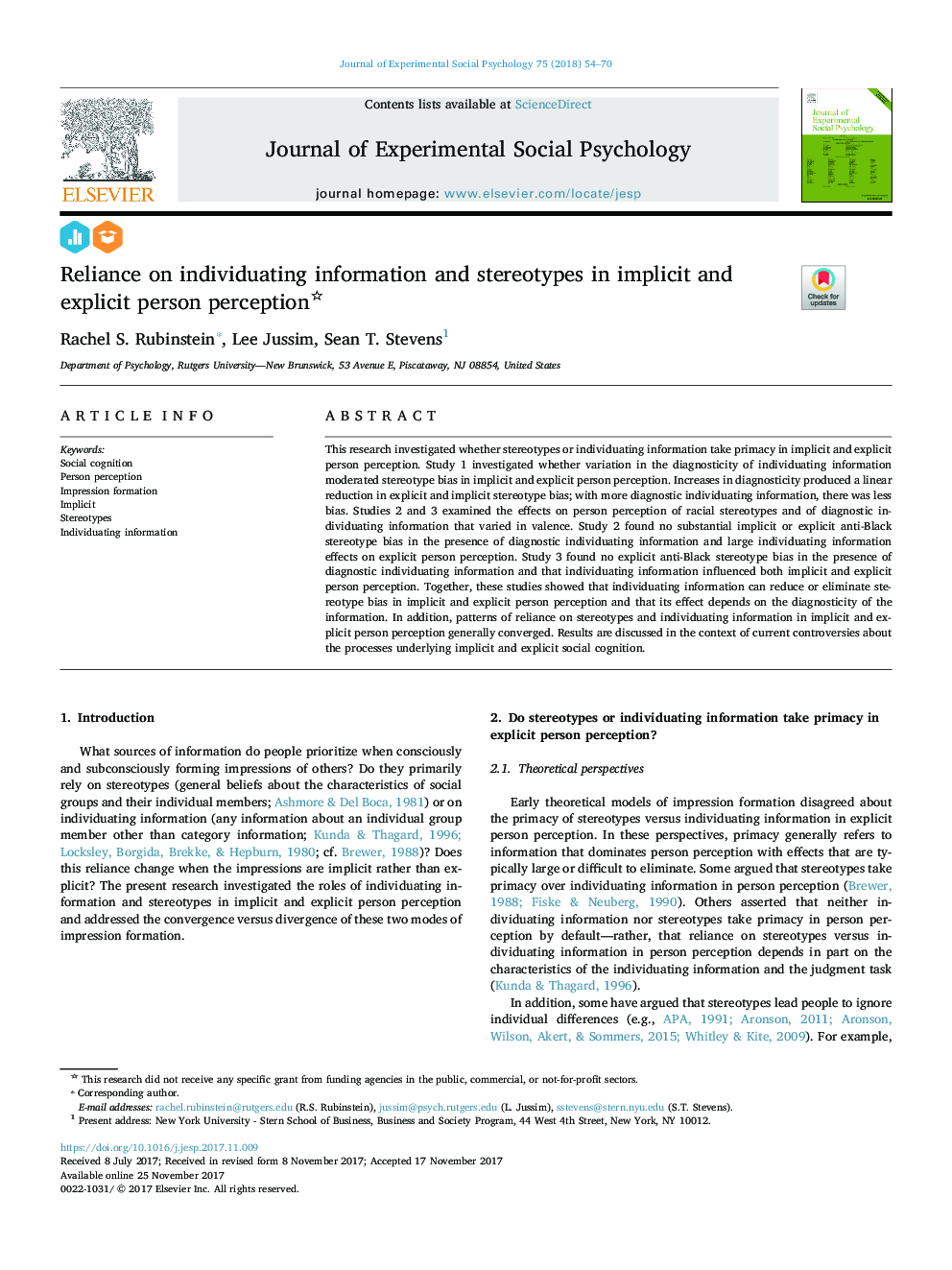| Article ID | Journal | Published Year | Pages | File Type |
|---|---|---|---|---|
| 7324231 | Journal of Experimental Social Psychology | 2018 | 17 Pages |
Abstract
This research investigated whether stereotypes or individuating information take primacy in implicit and explicit person perception. Study 1 investigated whether variation in the diagnosticity of individuating information moderated stereotype bias in implicit and explicit person perception. Increases in diagnosticity produced a linear reduction in explicit and implicit stereotype bias; with more diagnostic individuating information, there was less bias. Studies 2 and 3 examined the effects on person perception of racial stereotypes and of diagnostic individuating information that varied in valence. Study 2 found no substantial implicit or explicit anti-Black stereotype bias in the presence of diagnostic individuating information and large individuating information effects on explicit person perception. Study 3 found no explicit anti-Black stereotype bias in the presence of diagnostic individuating information and that individuating information influenced both implicit and explicit person perception. Together, these studies showed that individuating information can reduce or eliminate stereotype bias in implicit and explicit person perception and that its effect depends on the diagnosticity of the information. In addition, patterns of reliance on stereotypes and individuating information in implicit and explicit person perception generally converged. Results are discussed in the context of current controversies about the processes underlying implicit and explicit social cognition.
Related Topics
Life Sciences
Neuroscience
Behavioral Neuroscience
Authors
Rachel S. Rubinstein, Lee Jussim, Sean T. Stevens,
